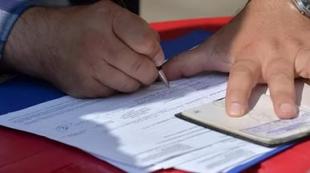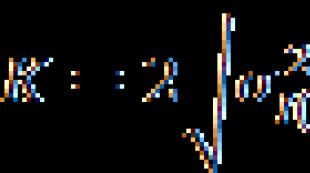Appointment of handwriting examination in civil proceedings. Sample petition requesting the appointment of a handwriting examination. For what purpose is it prescribed?
The request for a handwriting examination is submitted to the court as part of an already initiated trial. Another option is to conduct an examination during a criminal investigation.
What is a handwriting examination, and how can one achieve it?
Legislative regulation
The procedure for appointing and conducting an examination is regulated as follows:
- Procedural codes (Civil Procedure Code, Code of Criminal Procedure, CAS and Code of Administrative Offenses), which contain the rights and obligations of participants in the said procedure. They also describe the nuances of a request for a handwriting examination.
- The Law “On State Forensic Examination”, which describes the status of persons engaged in these studies, the requirements for them, as well as the directions for the development of forensic examination. The normative act complements procedural legislation.
- Orders and instructions of departments that resolve issues of conducting examinations by departments and organizations belonging to the relevant departments.
- Methodological recommendations describing research methods, collection of materials and rules for their evaluation.
In addition, there are clarifications from the RF Armed Forces. One resolution of the Plenum was adopted on examination in criminal proceedings and one review of the practice of conducting examinations in the consideration of civil disputes.
Why study procedures?
To achieve the purpose of the study, one must have an idea of how such issues are resolved. If a refusal is received, the right to appeal remains. If this is not possible, it is worth raising this issue again at the stage of appeal, cassation or supervision.
Civil process
A request for a handwriting examination in a civil case is submitted to a judge. The document is prepared along with the claim. Then, during the trial, during the preliminary hearing, the issue of conducting an examination is decided.
Filing an application after preparation for the process is complicated by the obligation to explain to the court why it was not filed earlier.

The decision to order an examination is made by the judge either at the request of one of the parties or on his own initiative. By the way, the court has no obligation to order an examination. A request for a handwriting examination may be denied.
A determination is made on the purpose of the study with questions, the institution to which the materials are transferred and whose services are paid for by the participants in the process is indicated. The questions are standard, they are most often asked by the judge, and the parties do not interfere with this, with rare exceptions.
Arbitration process
According to the APC, a request for a handwriting examination is made in the same mode.
The document is submitted along with the claim, but is then announced in court at a preliminary hearing. The judge, on his own initiative, orders a study if it is directly mentioned in the law, in the terms of the contract, or if the authenticity of the evidence is called into question. Otherwise, the decision to order an examination is made only at the request of a participant in the process.
The questions are selected by the judge, the parties have the right to make their proposals.
Administrative process
The new code regulating the consideration of disputes with authorities in terms of the rules for appointing examinations is more similar to the Civil Procedure Code than to the Arbitration Procedure Code.

A petition for a handwriting examination to an arbitration court, as an example in this case, will be less suitable than a similar petition in a civil case.
Scheme of a petition to the court
Procedural documents are drawn up according to a specific template:
- Name of the court.
- Full name of the participant in the process.
- Reasons why an examination is needed.
- References to legislation, in particular if the research is necessary due to its operation.
- Suggested questions for the expert.
- Suggestions on where to conduct a forensic handwriting examination (in which institution or who specifically should be entrusted with carrying it out).
- Please conduct an examination indicating the document being examined.
- Signature and date.
The proposed scheme is suitable for any business, but its specifics must be taken into account. If it does not go beyond the scope of a typical dispute, no difficulties arise.
Features of the criminal process
During the investigation, a request for a handwriting examination is submitted to the investigator or the judge if the case is already at the trial stage.

The appointment of an examination can be carried out in two stages:
- An expert is selected, his qualifications and the need for his participation in investigative actions and the study of the circumstances of the case are clarified.
- Questions are being asked.
Each time a decision or determination is made by an investigator or judge.
Petition at the preliminary investigation stage
A representative of both the defense and the prosecution has the right to request a forensic handwriting examination. In addition, it can be appointed by the investigator on his own initiative. The civil plaintiff and civil defendant have the right to this, provided that their interests are affected. In this case, the petition is drawn up as follows:
- Full name of the investigator or head of the investigative team working on the case;
- case number;
- circumstances compelling you to make an application;
- links to current legislation;
- suggested questions;
- date and signature.
Expertise in criminal cases is carried out by forensic centers of law enforcement agencies. Appeal to civil organizations is allowed if the examination cannot be carried out in a specialized organization.

Participants in the process have the right to file a complaint against the investigator’s refusal or consent to conduct the research.
The prosecutor or court has the right to declare the refusal illegal and order an examination to be carried out.
Expertise and trial in criminal proceedings
The issue is resolved at the judicial stage if circumstances involving forgery or falsification are discovered at this stage. Other options - if it was carried out with violations or incompletely. And the court is faced with a choice: to conduct additional or completely new research.
A request for a handwriting examination in a criminal case will be granted by the court if it agrees that the previous refusals are unfounded.

The described type of research, according to the Code of Criminal Procedure, is not included in the list of mandatory ones.
Objects and materials of research
Experts examine several categories of objects:
- signatures on documents;
- inscriptions, notes, extracts that are small;
- voluminous records (for example, text occupying a page);
- Copies of documents are being examined.
Handwriting samples are selected depending on the needs of the examination. The documents must be comparable, for example written in the same language at approximately the same time. The period of time elapsed between writing papers should not be too long.
The collected materials are classified as follows:
- free;
- conditionally free;
- experimental.
In the first case, they deliberately try to collect documents written in a free state, when a person did not expect that the papers he compiled would go to specialists for study. Statements and orders, in particular those filed as part of a trial, are quite suitable material.

If a text is being analyzed, they try to collect at least 6 sheets of handwriting samples, if signatures - at least 10 sheets. All the papers on which the person whose signature is being examined are collected.
Conditionally free are formed, perhaps with the understanding that they will be studied in the future. For example, those papers that are in the case materials.
Experimental samples - created for the purpose of conducting an examination in the presence of an expert.
What goals are set for the expert?
There are two goals for signature examination:
- Determine the authenticity of a signature or text.
- Find out what conditions the person writing was in.
There are several positions regarding the last point:
- the emotional or physical state of a person that affects the style of handwriting;
- the position in which the person writing was located;
- whether the handwriting changed consciously;
- whether there was a desire to reproduce someone's handwriting.
What questions are asked
The examination of a signature or other document requires that questions be selected that are appropriate to the specific circumstances. The majority of cases are not original, and, accordingly, the questions are repeated.
Practice shows that the list of questions is agreed upon with expert organizations over time. Otherwise, the specialist will either not give answers to them, or they will not satisfy the judge due to insufficient clarity. This practice is especially typical for law enforcement agencies.
Their approximate list is as follows:
- Which of the named persons wrote the text?
- Did the person named sign in several places on the documents?
- Was the text written by the person indicated?
- Was the document written in whole or in part by the named person?
- Was the text written by a man or a woman?
- What age group does the author of the written text belong to?
- Was the text written in a normal setting?
- Was the text written in a non-standard situation?
- Is there an imitation of someone else's signature or a distortion of the original one?
- Are there any additions or corrections to the text made by others?
- Was the text actually executed on the date indicated in the document?
Finally
The examination is carried out as prescribed by the court or investigator by specialists with specialized training. The objectives of the study are to find out the state of the writer of the text, as well as whether it is genuine.
It is possible to challenge a signature, handwritten note or handwritten text in a written document through a handwriting examination, a sample petition for which is available in this section.
Examination of handwriting and signature is a method of evidence in lawsuits, as well as in pre-trial dispute settlement.
The need to conduct a handwriting examination arises to identify the person who signed the document, who made the handwritten note or text, as well as to identify the important conditions under which the document was drawn up.
Download a sample application:
Why apply for a handwriting examination?
In a trial or as part of investigative actions, it is often necessary to conduct one or another examination, the results of which will be significant evidence in the case. In order for an examination to be appointed, the parties and other persons participating in the case have the right to file a petition for a forensic examination.
How to correctly submit a request for a handwriting examination
To correctly draw up a request for a forensic handwriting examination, we recommend contacting professional lawyers.
One of the important points in preparing a petition is asking the expert questions for a handwriting examination. A handwriting examination carried out on incorrectly written questions will entail additional costs for the payment of a forensic examination in the event of a repeat forensic examination.
Contents of the application for handwriting examination:
- name of the court, applicant and parties to the case;
case number, essence of the claims; - name of the application;
justification for the need to order a handwriting examination. Indicate the circumstances that a handwriting examination can establish; - questions to the expert;
- information about the expert institution (name, address and contact details);
- date and signature on the application;
- Appendix – information letter about the possibility of conducting a forensic handwriting examination.
See an example of a request for handwriting examination in civil proceedings.
See an example of a request for a comprehensive handwriting and technical examination of documents in the arbitration process.
When should you apply for a handwriting examination?
A request for a handwriting examination can be submitted at any stage of the consideration of a legal dispute, but it must be done before the court makes a decision on the case, i.e. both in the preliminary and main court hearings.
Such a request may be made in civil, arbitration, administrative or criminal proceedings. Simultaneously with the petition, an application for falsification of evidence may be filed.
Consideration by a court or investigator (inquirer) of a request for a handwriting examination
The court or investigator (inquiry officer) is obliged to consider the petition received by it, having heard the opinion and objections to the petition. Issues of granting or refusing to order an examination remain at the discretion of the court or investigator, who also have the right to approve the final list of documents being examined and questions for the expert.
ATTENTION: our lawyer will help you draw up a petition for the appointment of a handwriting examination: professionally, profitably and on time. Call!
To the Federal Court of Ordzhonikidze District of Yekaterinburg.
Judge Nikulina A.L.
RESPONDENT:
Petition
on the appointment of handwriting examination in civil proceedings
Your case is pending a civil case regarding S.’s claim against LLC for the recovery of funds under an investment agreement and interest for the use of other people’s funds. During the trial, the plaintiff refers to the investment agreement dated July 25, 2005 in support of his claims. The specified document was submitted to the court signed by B.
HEALTHY: all about or parties to the case via the link on the main part of the site. Watch the VIDEO on the issue of appointing and challenging an expert examination in the case and subscribe to my YouTube channel to be able to receive advice from a lawyer and answers to your questions through comments on the videos:
B. never signed this agreement; the director of the LLC became aware of its existence only at the end of December, after the LLC’s account was arrested on the basis of a default judgment issued on August 16, 2010 by the Ordzhonikidze District Court of the city of Yekaterinburg on S.’s claim against the LLC for recovery funds under the investment agreement and interest for the use of other people's funds and familiarization with the case by photographing.
With this agreement, the plaintiff is trying to prove the existence of a contractual relationship with the LLC and the transfer of 100,000 rubles. If it is established that the signature on this agreement was not made by B, then this document cannot serve as evidence in the case.
To clarify all the circumstances of the case, I consider it necessary to appoint a handwriting examination because the director of LLC B. did not sign the investment agreement, the signature on the presented document does not belong to B., and, therefore, doubts arise about the authenticity of the presented documents.
Questions for the expert: Who, B. or other persons, signed on behalf of B. Director of the LLC in the investment agreement dated July 25, 2005 in the signature column of the parties on the third sheet of the agreement?
According to Art. 79 of the Code of Civil Procedure of the Russian Federation: “if issues arise during the consideration of a case that require special knowledge in various fields of science, technology, art, craft, the court appoints an examination. The examination may be entrusted to a forensic institution, a specific expert, or several experts. Each of the parties and other persons participating in the case has the right to present to the court issues to be resolved during the examination. The final range of issues on which an expert opinion is required is determined by the court. The court must give reasons for rejecting the proposed questions.”
Failure to satisfy my request prevents the adoption of a lawful court decision based on a comprehensive and complete study of the evidence and the factual circumstances of the case.
ATTENTION: if required, then read the link on this issue.
Based on the aforesaid and guided by Article. 79 - 81 Code of Civil Procedure of the Russian Federation:
ASK:
- I request that a handwriting (graphological) examination be ordered in the case, with the following questions to the expert:
- Who, B. or other persons, signed on behalf of B. Director of the LLC in the investment agreement dated July 25, 2005 in the signature column of the parties on the third sheet of the agreement?
- The examination will be entrusted to the State Institution of the Ministry of Justice of Russia "Ural Regional Center for Forensic Expertise", located at the address: Ekaterinburg, st. Bazhova, 72.
Date, signature









